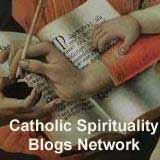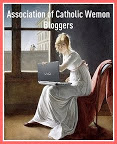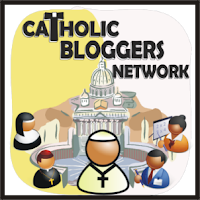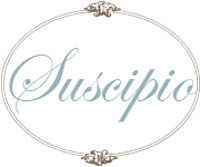I’ve read at least a dozen books on homeschool philosophy and gleaned something from every one. But none exactly met my vision of what I wanted our homeschool to be. Some were literature-based (Charlotte Mason/Real Learning). Others were history-based (Neo-Classical/The Well-Trained Mind). Others were classics-based (The Latin-Centered Curriculum). The faith-based methods fell into two general categories of Protestant, Bible-based (Ruth Beechick) and either Protestant or Catholic textbooks that incorporated the faith into each subject (Seton Homeschool and Catholic Heritage Curricula). I decided to create a Catholic Bible-based homeschool method.
Teaching with homilies, not sermons
One way in which the Contemplative Homeschool is different from other faith-based methods is that I spread religion across the curriculum in a homily, not sermon, format. A sermon, common in Protestant churches, starts with an idea. The preacher finds Bible passages to support his idea. A homily, on the other hand, begins with the Church’s Scripture readings for the day, and pulls ideas out of them. Both can teach the same subject, but from the opposite direction. A homily, ideally, should give a greater insight into a particular Bible passage, while a sermon might show how a particular idea is taught throughout the Bible.
Catholic Heritage Curricula (and those like it) takes a subject and brings the faith into it. For example, The Catholic Speller includes words such as “Mass” in the appropriate units. This method is common, even used in some Catholic schools. I see this as a sermon approach. The faith is added on to a subject, but the subject is central.
In contrast, I am going through the Bible with my boys from start to finish. I take a Bible story–Jacob and Esau, for example–and create a unit to connect as many subjects as I can to the themes found in the story. The central focus is the Bible, not the subject. I see this as a homily approach.
I see many advantages to the homily approach, which I will detail in a future post.
Connie Rossini
Read More: Here’s a pared-down example of a unit on Manna in the Wilderness
Share with us: How do you incorporate the faith into your homeschool?














I am looking forward to how you incorporate this Connie…very interesting! We are currently following the Latin Centered Curriculum ourselves. Our day begins with either a scripture verse from the New Testament or a story from the Old Testament.
How do you incorporate catechism in your day? I haven’t found anything that truly grabbed me (and my daughter). I love reading the Psalms or reflecting on a New Testament verse to her…she LOVES the Psalms!
Have a blessed day.
Catechism is always a challenge. Right now, we do Catechism first thing on Monday morning. My first grader (C) uses the First Communion Catechism. The older two are going through a book about being Peacemakers–something we really need here! The full Baltimore Catechism is quite deep and rather dry. We sometimes do activities from 100 Activities Based on the Catechism… by Ellen Rossini (yes, there is a relationship–her husband and mine are first cousins, but we’ve never met). There really is a dearth of sources like this with good activities–maybe I’ll have to write one, but not today! (Oh yeah, I did make my own First Communion activities, based on Fr. Lovasik’s book.) We memorize a Scripture verse with each unit, sometimes directly from the story we have read, other times on one of the themes but from elsewhere in the Bible. Last year D also studied the changes in the Mass translation with lesson plans I found online from the diocese of Lansing. When we finish the NT, probably sometime next year, we will probably read The Creed in Slow Motion by Msgr. Ronald Knox. It was written for middle school kids and is quite entertaining. He also has one on the Mass. (I don’t think they’re in print; I found the one at Loome’s). I plan to read early creeds and Church fathers, the Didache, etc. We are doing this chronologically, and I prefer to use primary sources rather than textbooks or snippets. My godson is starting high school at home next Fall, so I’m thinking more about this. His mom (my sister-in-law) hasn’t homeschooled for the last few years, so she’s looking for advice too. My kids are still pretty young! Another great source I’ve mentioned before is Memorize the Faith. My boys have learned the 10 Commandments, Beatitudes, mysteries of the Rosary, and we used the method to memorize the popes since Pius IX.
What I didn’t like about the Latin-Centered Curriculum is it seemed to place Greco-Roman culture above Christian culture as a focus of the curriculum. Plus, it was a heavier load than I wanted for the elementary years. I may do a full-fledged critique of that later.
I think classical education as a whole tends to do that. Would love to hear your thoughts. I do like using their Christian Studies (MP) series along with our own studies (Faith & Life). She loves the Old Testament stories…very adventurous. I will look into Fr. Knox’s book.
You may be on to something though Connie…the Spirit may be leading you do something biblical based (Catholic). Thanks for your time in responding.
I also wanted to add in addition to my comment that the most recent addition of the LCC includes excellent recommendations for Catholics in the subject fields of history, religion and literature. I love that one of the recommendations for high school lit is *The Practice of the Presence of God*! Also, he lists some excellent well known resources for bible study starting in 5th grade.
Your unit type study reminds me very much of Connecting With History by RC History. Are you familiar with that? It is very biblical/historical based with lots of activities and studies to stem from the lesson.
Yes, last year when hs was so difficult, I thought about buying that program. Then I realized it wasn’t the curriculum that was stressing me out, but just discipline, etc. One way I do things differently is I don’t just concentrate on the historical aspect of Bible stories, but I ask what themes the stories have. Then we find literature, etc. that echoes those themes. So it’s a bit deeper study of the bible stories, I feel. We also go A LOT slower than RC History.
Pingback: Is your homeschool faith-based? | Contemplative Homeschool | Sermon Watch
Pingback: Why use a homily–not a sermon–format for homeschooling? | Contemplative Homeschool